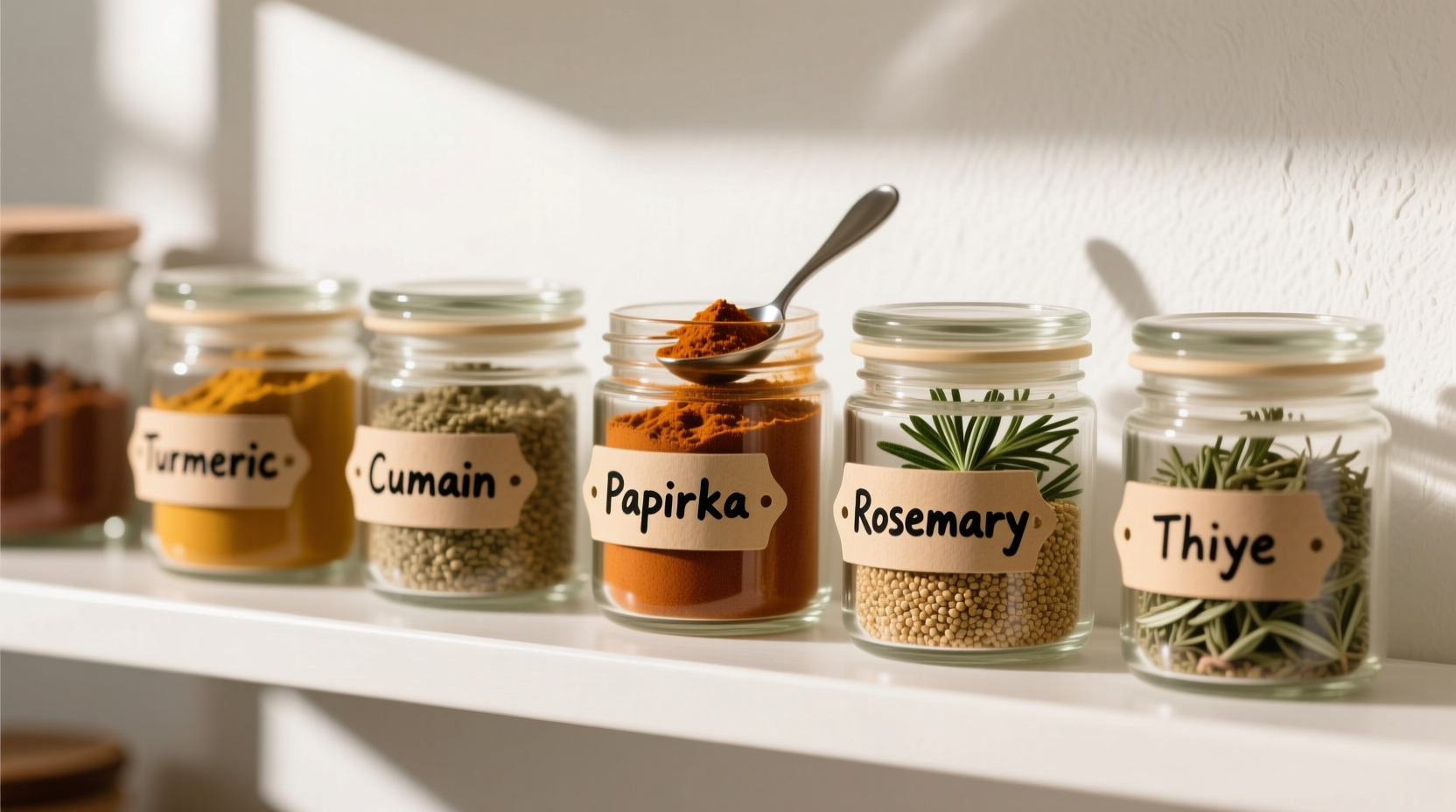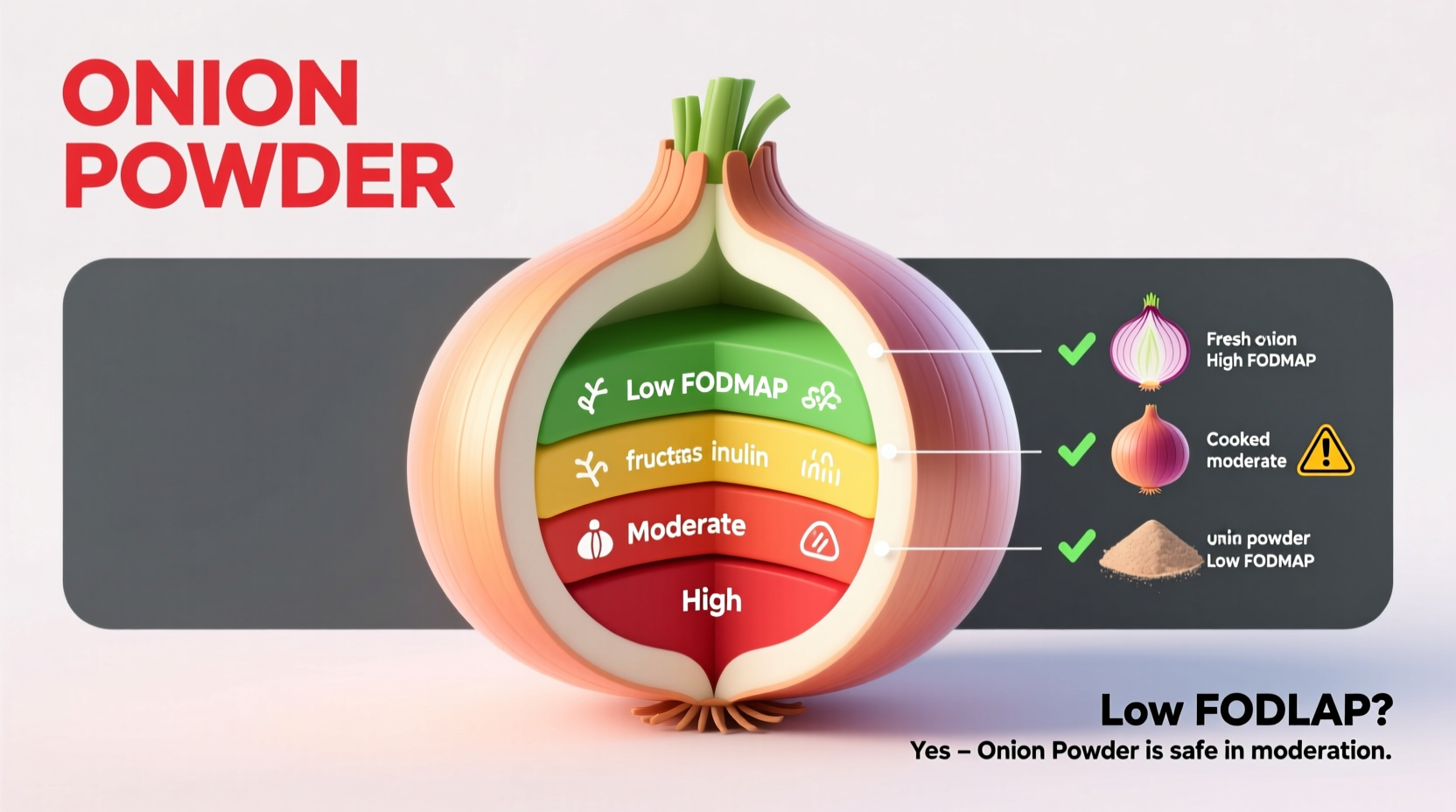For those managing irritable bowel syndrome (IBS) or sensitive digestion, understanding which spice ingredients are safe can make the difference between comfort and discomfort at mealtime. If you've been searching is onion powder low fodmap, you're likely navigating the challenging low FODMAP elimination phase and need clear, evidence-based guidance to avoid painful symptoms while still enjoying flavorful meals.
Why Onion Powder Matters for Your Low FODMAP Journey
Onion powder hides in countless packaged foods and spice blends, making it a common but often overlooked FODMAP trap. Unlike fresh onions where you control the portion, onion powder's concentrated form and presence in "natural flavors" means you might be consuming problematic amounts without realizing it.
Understanding FODMAPs in Processed Onion Products
When onions are dehydrated and ground into powder, their FODMAP content becomes more concentrated. Fructans—the specific FODMAP responsible for digestive distress—don't evaporate during processing. This means that while a small amount of fresh onion might be tolerable, the same volume of onion powder delivers a much higher fructan dose.
| Onion Product | Low FODMAP Serving | High FODMAP Threshold | Monash University Rating |
|---|---|---|---|
| Onion powder | 1/8 tsp (0.5g) | ≥1/4 tsp (1g) | Green (low) at tiny serving |
| Fresh onion (white) | 1 tbsp (12g) | ≥1/4 cup (36g) | Green at small serving |
| Onion flakes | 1 tsp (1g) | ≥1 tbsp (3g) | Green at minimal serving |
This comparison shows why onion powder requires extra caution—the low FODMAP threshold is significantly smaller than for fresh onions. Most home cooking and commercial products use amounts far exceeding the safe 0.5g limit.
What the Research Says: Monash University Findings
The Monash University team, who pioneered the low FODMAP diet, conducted laboratory testing using validated methods to measure fructan levels in onion powder. Their research revealed that:
- At 0.5g (1/8 teaspoon), onion powder contains minimal fructans and is considered low FODMAP
- Doubling the amount to 1g (1/4 teaspoon) pushes it into the moderate FODMAP range
- Standard culinary uses (1+ teaspoons) contain high fructan levels that will trigger symptoms for most IBS sufferers
These findings appear in the Monash University Low FODMAP app, which remains the gold standard for evidence-based FODMAP information. The research team uses high-performance liquid chromatography to precisely measure FODMAP content, ensuring reliable data for patients and healthcare providers.

Practical Guidance for Cooking with Confidence
Knowing is onion powder low fodmap matters most when you're applying this knowledge in real kitchens. Here's how to navigate this challenge:
Reading Labels Like a Pro
Onion powder frequently appears in:
- Pre-made spice blends (taco seasoning, curry powders)
- Broths and stock cubes
- Processed meats and vegetarian alternatives
- "Natural flavors" on ingredient lists
When checking labels, remember that ingredients are listed by weight. If onion powder appears in the first five ingredients, the product likely contains problematic amounts.
Safe Flavor Alternatives for Low FODMAP Cooking
Instead of wondering is onion powder low fodmap every time you cook, try these reliable substitutes:
- Asafoetida (hing): A pinch provides savory umami without FODMAPs
- Green onion tops: The green parts only (5cm/2in) are low FODMAP
- Infused oils: Garlic-infused oil (without actual garlic pieces)
- Chives: Use fresh for onion-like flavor safely
Avoiding Common Pitfalls
Many people following the low FODMAP diet make these mistakes with onion powder:
- Assuming "no onion listed" means safe (onion powder can be hidden as "spices")
- Using "low sodium" products without checking for onion powder
- Not measuring small amounts—1/8 teaspoon is visually tiny
- Thinking onion salt is safer (it contains the same problematic powder)
When Small Amounts Might Work for You
During the elimination phase, strict avoidance is recommended. However, during the reintroduction phase, you might test your personal tolerance. Start with exactly 0.5g (1/8 teaspoon) mixed into a large dish (like 4 servings of soup) to minimize exposure. Wait 72 hours before testing a slightly larger amount.
Remember that individual tolerance varies—while some may handle 1g of onion powder, others react to even the smallest amounts. Keep detailed food and symptom records during reintroduction.
Key Takeaways for Your Low FODMAP Success
Understanding whether is onion powder low fodmap isn't just academic—it directly impacts your digestive comfort. To summarize:
- Standard culinary uses of onion powder are high FODMAP
- Only 0.5g (1/8 teaspoon) qualifies as low FODMAP
- Check all spice blends and processed foods for hidden onion powder
- Use asafoetida, green onion tops, or infused oils as safer alternatives











 浙公网安备
33010002000092号
浙公网安备
33010002000092号 浙B2-20120091-4
浙B2-20120091-4